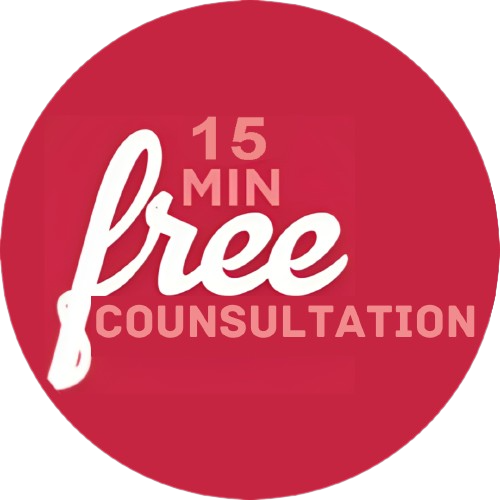
Study In Canada
Canada study permit
Studying in Canada is extremely popular for those who choose to experience a vibrant multicultural society, first grade education that will open doors around the world and the ability to make Canada your new home.
What is a study permit?
A Canadian study permit is an official document issued to foreign nationals who have been accepted into a higher institute of learning. Namely, but not exclusively Universities.
Eligibility to study in Canada
Canada want and encourage international students to come and learn in Canada. Therefore, the process to receive a study visa is fairly simple. International students wishing to start studying in Canada will need to meet the following basic criteria.
- Acceptance to a designated learning institution (DLI). This is a letter of acceptance sent by the school confirming your acceptance. A DLI is a learning institution approved by a provincial or territorial government to receive international students. Check to see if your education institution is a DLI on the IRCC website here .
- Prove that you are able to pay for all your tuition fees and living expenses (housing, food etc). You will only need to show you can support yourself (tuition and living costs) for one year, however you must satisfy the Canadian government that the possibility for continued funding does exist. For example, a full scholarship or proof that your parents are fully employed.
You can prove your ability to support yourself in a number of ways. Including; financial bank statement in Canada in your name, Proof of student or educational loan from a bank, bank statements from the last four months, a bank draft that can be converted into Canadian dollars, proof you paid housing and tuition fees, a letter from the person giving you money and or proof of scholarship from your chosen school, Guaranteed Investment Certificate (GIC) from a participating Canadian financial institution.
- If you have family members come with you during your study period in Canada, you will need to prove you can support them as well or they are able to support themselves.
- Prove to an immigration officer that you intend to leave Canada when your study permit expires.
Application for a study permit
There are three stages to receiving your Canada study permit:
1. Ensure you have all required documents.
- An acceptance letter from a designated learning institution (DLI).
- Proof of your ability to fund your studies and support yourself.
- All accompanying documents; this may change according to your country of citizenship and residence. This may include documents such as a medical exam or police certificate.
Make sure you have all the above mentioned documents available and ready. If you meet the requirements, you can start to apply for your study visa. This is very important as an immigration officer can decline your application if you do not meet these criteria.
2. Submit Your Application.
- Create an account with Immigration, Refugees and Citizenship Canada (IRCC). This is an electronic application so all accompanying documents will need to be scanned and uploaded into your account. Our RCIC lawyers can create your account and apply on your behalf.
3. Application acceptance.
Once you have been accepted to study in Canada, you will be issued with a “letter of introduction”. This is a document that confirms you are allowed to study in Canada and includes your study permit reference number.
This letter is not your study permit. You will need to show this letter upon your arrival at a Canadian port of entry (POE). You must show this letter to a border services agent in order to be issued your study permit.
Do I need a letter of intent (LOI)?
A letter of intent, also referred to as a letter of explanation (LOE) is the single most important part of your student permit application. This letter is reviewed by an immigration agent / visa officer. The contents of this letter will influence heavily your Canada student permit acceptance.
This is your chance to speak directly to the immigration agent / visa officer and shine amongst the thousands of other hopeful applicants wishing to study in Canada. It is your chance to explain why you want to study in Canada, your academic goals, aspirations and unique qualities that will make you an asset to the academic institution you wish to study in and Canada as a whole.
The letter of intent also needs to persuade and assure the Canadian government that you intend to abide by the conditions of your study permit.
Studying in Quebec
Quebec has its own unique requirements and has considerable autonomy with regards to its acceptance and application procedures for all programs. Therefore, the process to study in Quebec is slightly different from all other Canadian provinces and territories
Receiving a Quebec study permit is broadly a three step process.
Step 1
Get accepted into the university or educational institution that you wish to learn in. Once accepted, you will receive a “letter of acceptance”. The educational institution must be a Designated Learning Institution (DLI) in Quebec. Check to see if your education institution is a DLI on the IRCC website here .
Step 2
In order to live in Quebec for the duration of your studies, you will need to receive a Quebec Acceptance Certificate. certificat d’acceptation du Québec (CAQ). This document authorizes your temporary stay in the province of Quebec.
In order to be eligible to receive a Quebec Acceptance Certificate (CAQ). An applicant must meet all the criteria outlined by the Quebec Immigration Agency. le Ministère de l’Immigration, de la Diversité et de l’Inclusion (MIDI). Click here to go to the foreign student section of their website for more detailed information.
In general, in order to receive (CAQ), the applicant will need to meet the following criteria:
- Have an acceptance letter from a DLI in Quebec.
- Demonstrate sufficient financial means to cover the cost of tuition and living expenses while residing in Quebec.
- Commit to making studying their primary goal.
- Ensure health insurance for the duration of their studies.
Step 3
That’s it! The final stage is to submit your study permit application.
Create an account with Immigration, Refugees and Citizenship Canada (IRCC). This is an electronic application so all accompanying documents will need to be scanned and uploaded into your account. Our RCIC Consultants can create your account and apply on your behalf.
* please note that there are differing requirement for supporting documentation that varies depending on country of origin.
Frequently Asked Questions:
Can I work during my studies?
Yes you can! As part of your study permit conditions, international students can work up to 20 hours a week on and off campus. No separate work visa is needed. During summer holidays you may also be entitled to work more than 20 hours.
Can my family come with me?
Yes, you will need to submit a request to bring your family with you in your application for a student permit. Bear in mind, that you will need to be able to show the Canadian government that the purpose of your stay in Canada is primarily your academic studies. Nevertheless less, once accepted, your wife or common law partner can work full time and your children will be able to learn in a Canadian School.
Can I work after my studies?
Once you have finished your studies, it’s a relatively simple process to apply for a Post Graduate Work permit (PGWP). Remember, after three years of studying in Canada, you gain credit for the time you have spent in a Canadian educational institution and being part of Canadian society. Typically, the length of the PGWP is the same as your study period, up to three years.
Can I stay in Canada after finishing my course?
Whist having studied in Canada does not guarantee you receive permanent residence in Canada, it does give you a lot of credit. There are many express entry streams and other Canadian immigration programs you can apply for after your studies. Having already worked and studied in Canada, you are an attractive candidate for being issued permanent residency. As long as you abided by the conditions of your student permit, you have a strong case to be granted citizenship.

